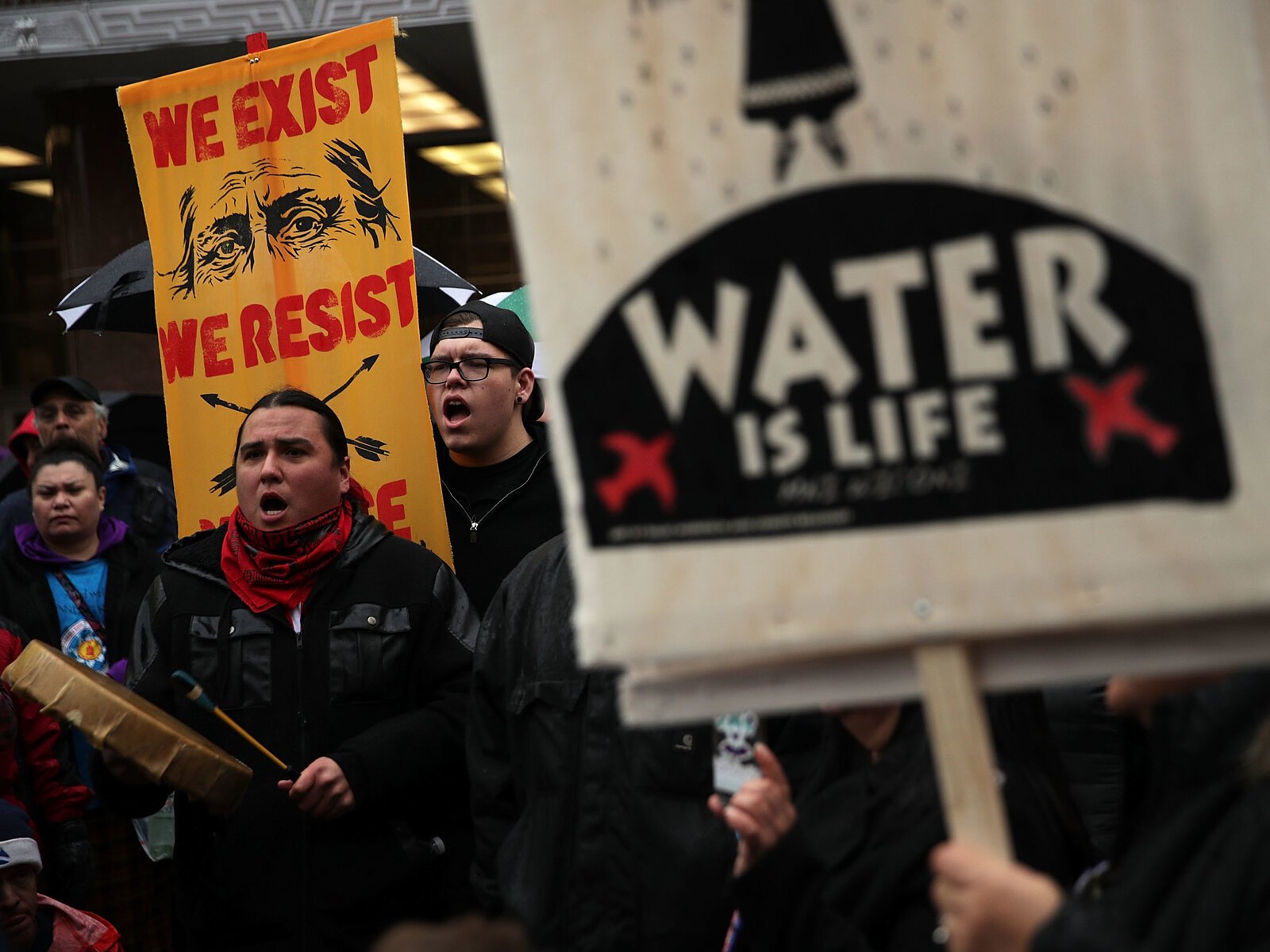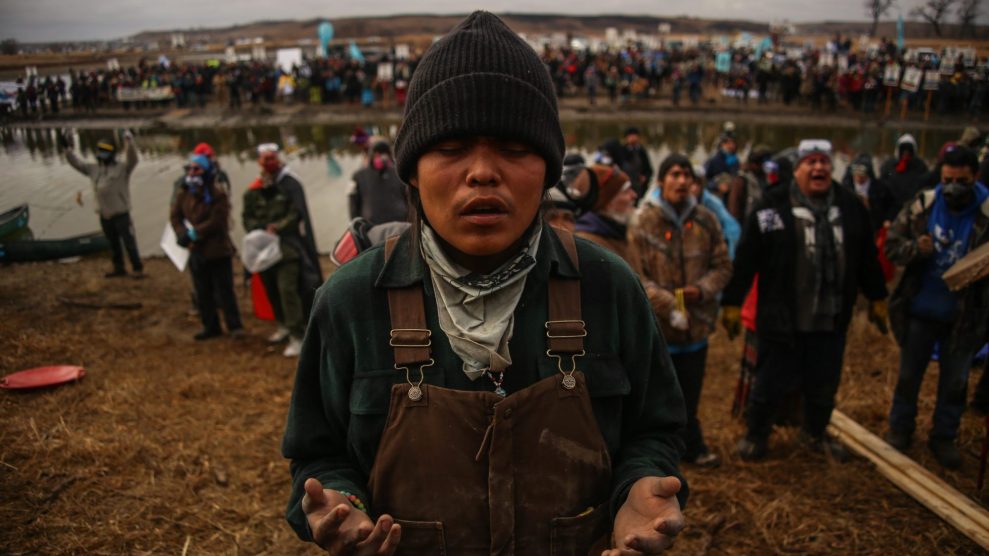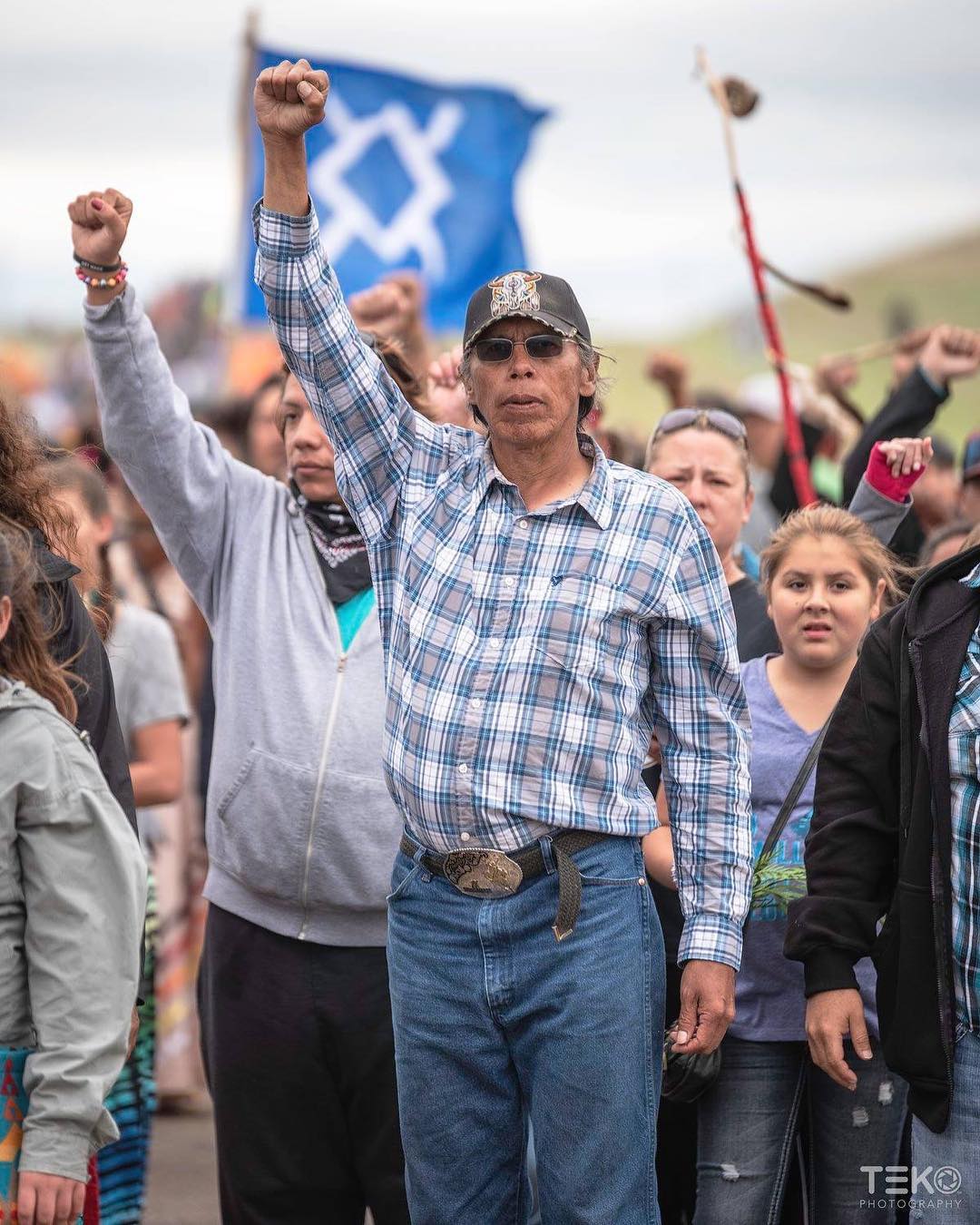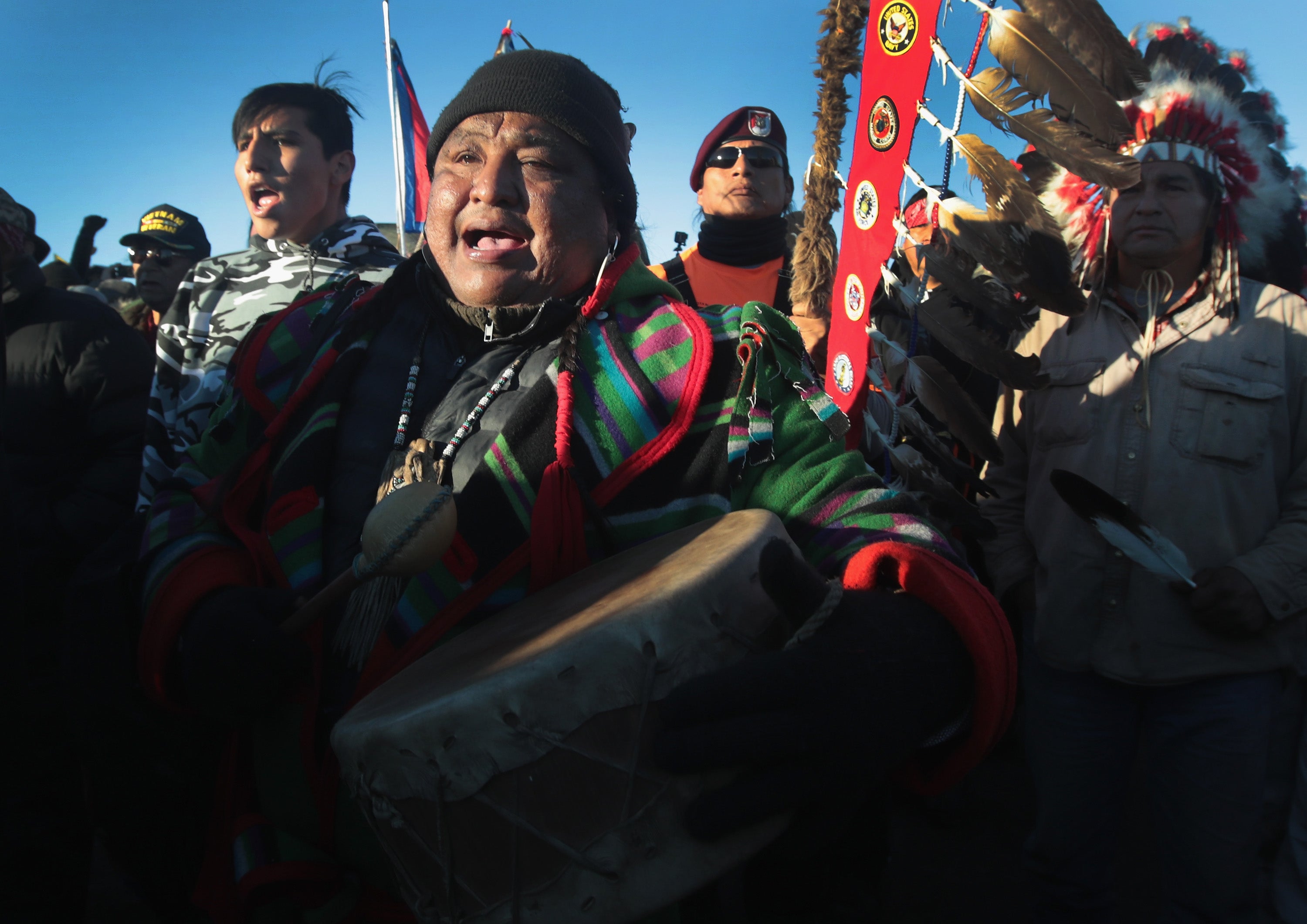
"Today is a historic day for the Standing Rock Sioux Tribe and the many people who have supported us in the fight against the pipeline," said Chairman Mike Faith of the Standing Rock Sioux Tribe in a statement to EarthJustice. "This pipeline should have never been built here. We told them that from the beginning."
"It took four long years, but today justice has been served at Standing Rock," Earthjustice attorney Jan Hasselman, who represents the tribe, said in a statement. "If the events of 2020 have taught us anything, it's that health and justice must be prioritized early on in any decision-making process if we want to avoid a crisis later on."

BACKGROUND
In December of 2016, the Obama administration denied permits for DAPL to cross the Missouri River, and ordered a full environmental impact statement to analyze alternative pipeline routes and impacts on the Tribe’s treaty rights. Yet on his second day in office, Trump reversed that order, directing that permits be issued. Pipeline construction was completed by June of 2017.
The Standing Rock Sioux Tribe challenged the permits in court and won. The court ruled then that the environmental analysis had been insufficient because it failed to account for consequences facing the Tribe, and ordered the U.S. Army Corps of Engineers to redo it. However, the judge declined to shut down the pipeline in the interim.

The Army Corps then redid its environmental analysis, but shut the Tribe out of the review process, and concluded that its previous analysis had been sufficient and that nothing needed to change. In response, the Tribe, represented by Earthjustice, went back to court. In a motion for summary judgment filed last August, the Tribe asked the Court to shut down the pipeline, and order the Corps to conduct a full environmental analysis. The Court granted the Tribe’s request in a March 25, 2020 ruling, yet left open the question as to shutting down the pipeline in the interim.
The massive 2016 gathering of Tribes and allies defending Standing Rock Sioux territory from DAPL captured the world’s attention and attracted international media coverage. It helped give rise to a global movement of indigenous resistance to fossil-fuel infrastructure projects.

WHAT’S AT STAKE
In an unprecedented victory for Standing Rock Sioux Tribe after four-year legal battle, a federal judge has ordered the owners of the Dakota Access Pipeline to halt operations while the government conducts a full-fledged analysis examining the risk DAPL poses to the Standing Rock Sioux Tribe. The pipeline shutdown will remain in place pending completion of a full environmental review, which normally takes several years, and the issuance of new permits. It may be up to a new administration to make final permitting decisions. Write to your members of Congress in support of the Standing Rock Sioux Tribe and its fight for justice and sovereignty.
Write to your members of Congress in support of the Standing Rock Sioux Tribe and its fight for justice and sovereignty. (read more)



